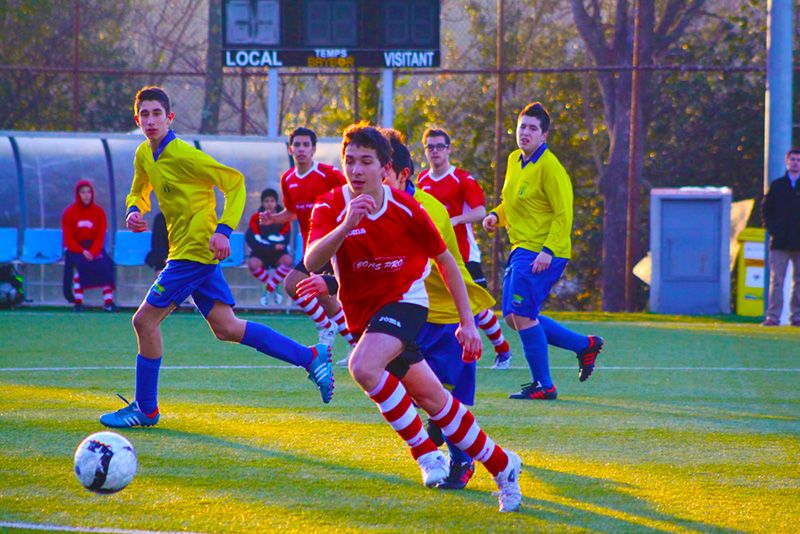
Japanese Soccer Gains from Spain
Culture- English
- 日本語
- 简体字
- 繁體字
- Français
- Español
- العربية
- Русский
Japanese Talent in Spain
Recently I have noticed that several Japanese soccer players are thriving in Spain. One example is Kubo Takefusa, an elementary school student from Kanagawa Prefecture who has played for the Barcelona Football Club’s cantera (the club’s youth academy) since the 2011–12 season. Already Kubo has scored over 100 goals.
The cantera is principally for local Spanish boys above seven years of age, with foreign players usually entering their ranks at age 13 and above. Kubo, however, was only nine years old when he joined—becoming the first Japanese player to enter a cantera at such a young age. And Kubo was just six years old when he first said that he wanted to play in Barcelona. The opportunity to fulfill his wish came when Barcelona FC hosted a soccer camp in Japan. Kubo seized the chance by winning the Most Valuable Player award.
Japanese women are also displaying their soccer prowess in Spain. In Madrid, for example, Iwakura Mitsue—a member of Japan’s national soccer team—has been enjoying success as a member of Atlético de Madrid’s women’s team since the 2012–13 season.
A Niigata Club Takes the Field in Barcelona
 The Albirex Niigata Barcelona logo.
The Albirex Niigata Barcelona logo.
The news does not end with stories of individual players; there is also interesting activity at the club level. Albirex Niigata is a Japanese J. League team that has an affiliated club called Albirex Niigata Singapore, which competes in the S. League. The Singapore club recently established another affiliate, Albirex Niigata Barcelona, which will compete in the fourth group of the Quarta Catalana (a Catalonian amateur league).
The club’s CEO, Korenaga Daisuke, says that the Spanish team was set up with the “aim of nurturing more and more young Japanese players with the capacity to play on the global stage.” With that in mind, the club not only trains players, but also offers them a wide-ranging educational program that includes them instruction related to language, business, and media relations. The establishment of the team in 2013 seems appropriate because it is the year that marks the 400th anniversary of relations between Japan and Spain.
 The team Albirex Niigata Barcelona will participate in the fourth group of the Quarta Catalana starting in September 2013.
The team Albirex Niigata Barcelona will participate in the fourth group of the Quarta Catalana starting in September 2013.
The Wave of the Future?
In June 2013, Crown Prince Naruhito visited Santiago Bernabéu Stadium, the home ground of Real Madrid. This visit, which was widely broadcast by the local media, seems to reflect the hope in Spain that even more foreign players from Japan and elsewhere will come to Spain to play. This global outlook is clear from the information on the official Real Madrid website, which is fully available not only in Spanish but English, Arabic, Indonesian, and Japanese.
It is also worth noting the popularity in Spain of the Japanese animated series Captain Tsubasa, which focuses on the adventures of a youth soccer team. The main character in the series is a player named Ōzora Tsubasa. When the popular daily sports newspaper praised Kubo the headline read: “Ōzora Tsubasa Really Exists.” The newspaper also called the young player the “Japanese Messi.”
The involvement of players and teams in Spain may help to widely highlight Japanese soccer in other parts of Europe and also in Latin America. I hope that Japan can continue to engage in the sort of cultural exchanges that promote understanding, while cultivating young talent with global potential.
(Originally written in Japanese on June 14, 2013; logo and photograph courtesy of Albirex Niigata Barcelona.)